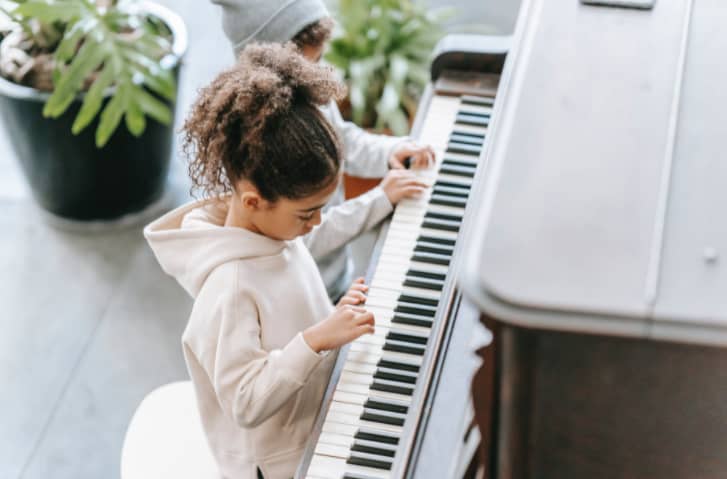Numerous studies have shown that music education has a positive impact on cognitive and non-cognitive skills. To investigate the benefits of music education, Dr. Moreno conducted a study in which a group received music training for six months. The children showed significant improvements in processing tasks that required attention or controlled responses, such as sport and Math. You can learn more about it at TimesUnion.

Moreover, the children also showed improvements in verbal intelligence and attention after the training. Now, imagine the positive impact a 6-month class would have on children. Imagine the wonders a well-structured music curriculum can do for a child’s imaginative mind. Music education has many benefits. Let’s look at some of the benefits.
Strengthens Brain Power
A musician’s brain is like a collection of firecrackers when they play an instrument. A pianist plays the piano using his eyes to read staves. He adjusts his playing by using his ears and listening to the notes. He uses his hands to create independent rhythms in perfect coordination that break up the rhythm. The piano is one of the few instruments where he must use each of his 10 fingers independently.
To play the piano pedals, he uses his feet. You also touch the keys to produce the desired sound. Stimulation of different regions of the brain is possible by playing any instrument. It is a great way to exercise the brain. Unlike mind games that tap into human behavior’s artistic and emotional aspects, music causes lasting changes in the brain. Many brain scan studies have shown this all over the world.
Maintains Mental and Emotional Health
Music can help children express themselves creatively when they are young. For children who have difficulty expressing themselves, singing and playing an instrument can be very satisfying. Music can be a great relief for children. When children are engaged in playing an instrument, they tend to relax. I have found that students who are unhappy at home or at school come to piano lessons depressed. However, they forget it quickly and feel happy after 15 minutes.
Develops Motor Skills
Music lessons can have a huge impact on children’s development from the age of three. As a piano teacher, I have seen young children struggle with left and right-hand coordination. The right hand has to play a certain set of notes in different divisions, and the left hand has to play a different set in different divisions. While reading the sheet music, the left hand must play the pedals at the same time. Perseverance pays off. Children who practice regularly will eventually master the coordination needed. It’s not easy, but it’s worth it. These little Mozarts will be able to multitask and learn well later on.
Improves Communication and Language Skills
Music lessons are a great way to help children develop their verbal skills. Science has shown that learning music engages the same parts of the brain as learning a new language. Yes, your child will love learning music. Learning music can help children develop their verbal and sound processing skills.
Enhances Memory and Concentration
Without focus, attention, and discipline to practice every day, a child cannot learn the simplest pieces of music. The pieces are reinforced with daily practice, which improves memory. This habit transfers to other areas of the child’s daily life. Playing sheet music with black dots is a way for the child to practice spatial skills such as reading pitch names, counting divisions, and keeping time. According to studies, music fires up the same part of the brain responsible for spatial skills. Skills needed to understand math.




